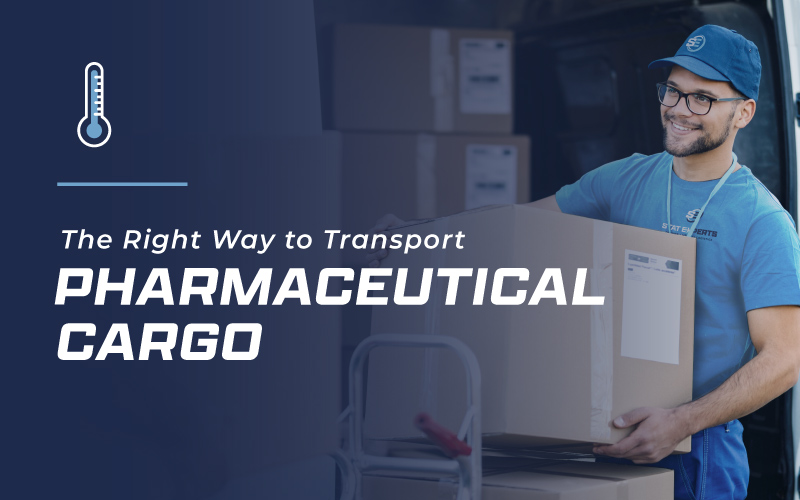If you work in pharmaceutical transportation, you’ve likely heard a lot about temperature controlled transportation. Stat Experts is fully equipped to keep your inventory at the right temperature during every stage of transportation.
From the warehouse to the loading dock to the truck to delivery, it is the logistics company’s job to keep your inventory at a constant temperature. If the medicine goes, the temperature must go with them. Maintaining a consistent and precise temperature is accomplished through temperature controlled packaging and vehicles within a certain time frame to ensure viability.
Pharmaceutical companies and pharmaceutical manufacturers must understand pharma logistics and its supply chain in order to implement proper risk management. While temperature controlled transportation are inherently necessary to transport pharmaceuticals, they must fulfill federal and state regulations surrounding pharmaceutical transportation.
The Necessities of Pharmaceutical Temperature Controlled Transport
While there are clear legal requirements that transportation companies must uphold in transporting pharmaceuticals, there are clear reasons as to why. If certain drugs are stored at the wrong temperature, they can become extremely harmful and dangerous to humans. Most temperature sensitive pharmaceutical products need to be kept within the temperature range of 2-8 degrees Celsius. Proper storage management is vital to maintain the medication’s quality!
Common Pharmaceuticals That Require Controlled Temp Transit
- Vaccines
- Biologics
- Insulin
- Chemotherapy Drugs
- Topical Preparations
This list is not extensive as about 70% of pharmaceuticals require temperature controlled transportation and warehousing.
Precise temperature control will “make or break” the success of your pharmaceutical temperature controlled transport. These temperature controlled transportation services are vital to delivering pharmaceuticals in usable and healthy conditions.
Federal Pharmaceutical Transport Requirements
Maintaining a proper and constant temperature for medication is vital to the safety of its usage. The U.S. Food and Drug Administration (FDA) has specific transportation requirements for pharmaceuticals. Title 21 requires all food and drug facilities, storage, and transportation vehicles to be capable of providing temperature controlled services. They also need temperature recording equipment to keep extensive written records within their management systems.
Temperature Controlled Shipment Options
With the above knowledge, we are sure you now understand the importance of temperature controlled packaging. These packages are detailed and designed to accommodate many products, from food to medicine to cut flowers.
Packaging options come in three forms:
- Active
- Passive
- Hybrid
Active Packaging
This type of packaging is called active because it actively absorbs and releases compounds. It maintains the constant diffusion of temperature controlled air to retain the quality of the products. Active packaging most commonly utilizes refrigeration methods that use lithium batteries.
Passive Packaging
Unlike active packaging, passive packaging uses insulation with an added refrigerant. Refrigerants include ice (wet or dry), gel packs, foam, liquid nitrogen, or phase change materials. These are more cost-effective solutions than active packaging.
Hybrid Packaging
As the name implies, hybrid packaging utilizes temperature controlled means in both active and passive packaging.
Entrust Stat Experts With Your Pharmaceutical Transportation
We are excited that you have decided to entrust us at Stat Experts to take care of all your pharmaceutical temperature controlled transportation needs and then some! Our pharmaceutical logistic services include:
- Temperature controlled transit
- On-demand pick-up and delivery
- 24/7-365 services
- Scheduled and routed deliveries
Explore all of our services and contact us today.


